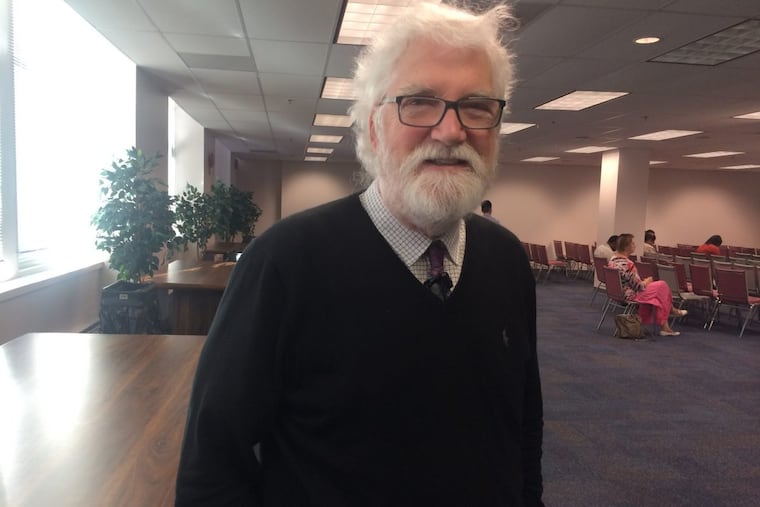Old people can be bullies. Here's what to do about it
An expert discusses what to do about bullying among elders.

Most of us probably think of kids when we think of bullies. Patrick Arbore thinks of an old man he watched trip a frail old woman in the senior facility where they both lived. He also thinks of a group of women elsewhere who taunted a new resident for speaking Spanish, and of an elderly resident who made a manager's life so miserable that she quit. The bully smiled broadly when the manager announced her resignation.
"That teenage boy who was the terror in your high school grew up and he just got better at it," said Arbore, who spoke Thursday at Philadelphia Corporation for Aging's Regional Conference on Aging, a three-day event that drew about 600 professionals who work with older adults and their families.
Arbore, who grew up on a Western Pennsylvania dairy farm, also thinks of his father and grandmother, who he says were bullies. Exposure to them made him repress his own anger, and he became depressed and suicidal. But his experience also convinced him that both victims and bullies deserve compassion.
"Bullying is taught," he said, and it often stems from fear and inadequacy. "People who bully have an intense desire to be in control. What that reveals underneath is insecurity," said Arbore, founder and director of the Center for Elderly Suicide Prevention and Grief Related Services at the Institute on Aging in San Francisco.
Arbore said he confronted the man he'd seen trip his fellow resident. She'd managed not to fall, but her lunch went flying. She cried when she got to her table. The man refused to meet Arbore's eyes and denied that he had done anything. Arbore talked to him again later and his anger spilled out. He hated the woman, he said. He hated old people and he didn't want to be like her.
The man's actions revealed his "internalized ageism," Arbore said.
Americans have gotten better at acknowledging bullying in schools, but they've been slower to confront the reality of bullying among seniors, Arbore said. Ten to 20 percent of seniors reported exposure to aggression by other older adults, usually verbal abuse, one study found. He thinks the behavior is underreported. Seniors are afraid to tell, and staff may be afraid that bullies will focus on them. The bullies may also be cunning enough to ingratiate themselves with managers.
Senior victims are often smaller and frailer than their bullies. Some may have dementia or anxiety, or even a history of abuse. Bullying often occurs when the staff isn't watching, in dining rooms where newcomers are shunned at certain tables and communal areas where a bully controls the television. Even Facebook can be a forum for bullying and exclusion.
The abuse may leave victims depressed and isolated. Arbore said bullies are dangerous because they inspire more bullying and fuel hate.
While some victims can learn to be more assertive, others must rely on staff to create an environment where everyone knows that bullying is unacceptable, Arbore said.
Bullies often have no idea how their actions affect others, he said. Empathy can be taught. Sometimes it's helpful for a staff member to mediate a discussion between bully and victim, concluding with the bully agreeing to stop.
Staff, he said, can "teach that bully that there are other people and it's OK if they are different than you are, and you're not in charge of the moral compass."